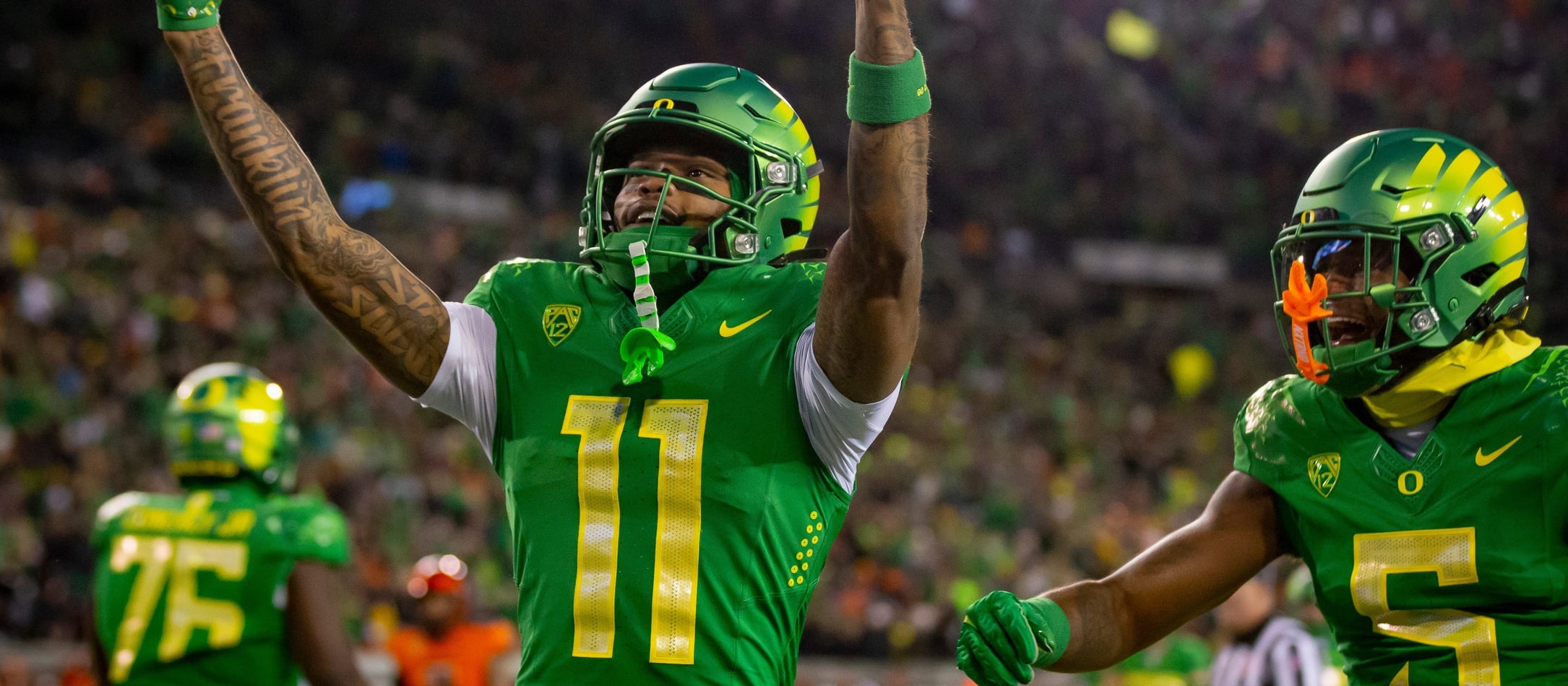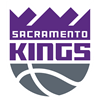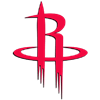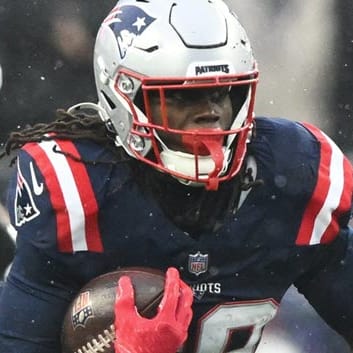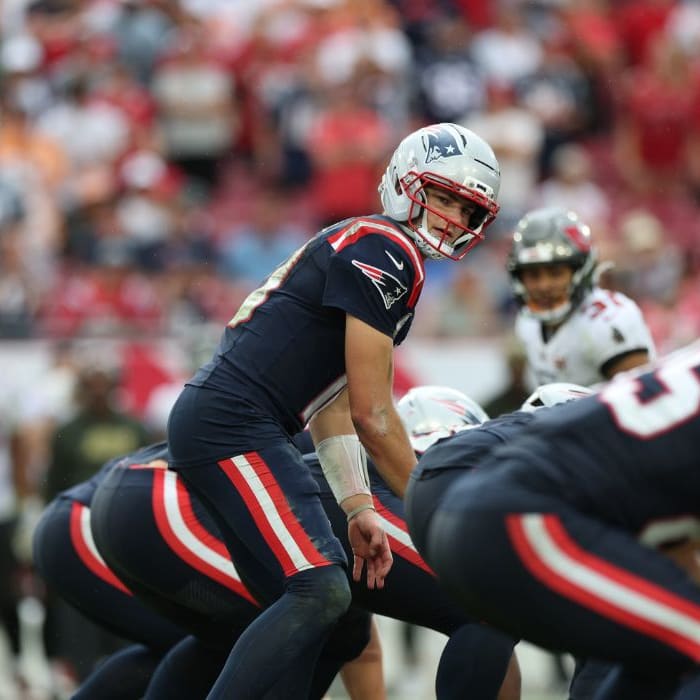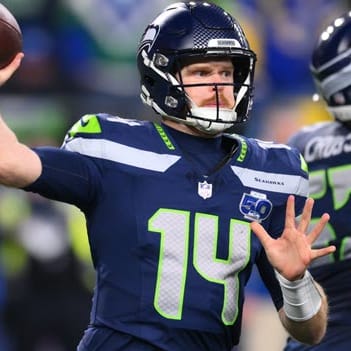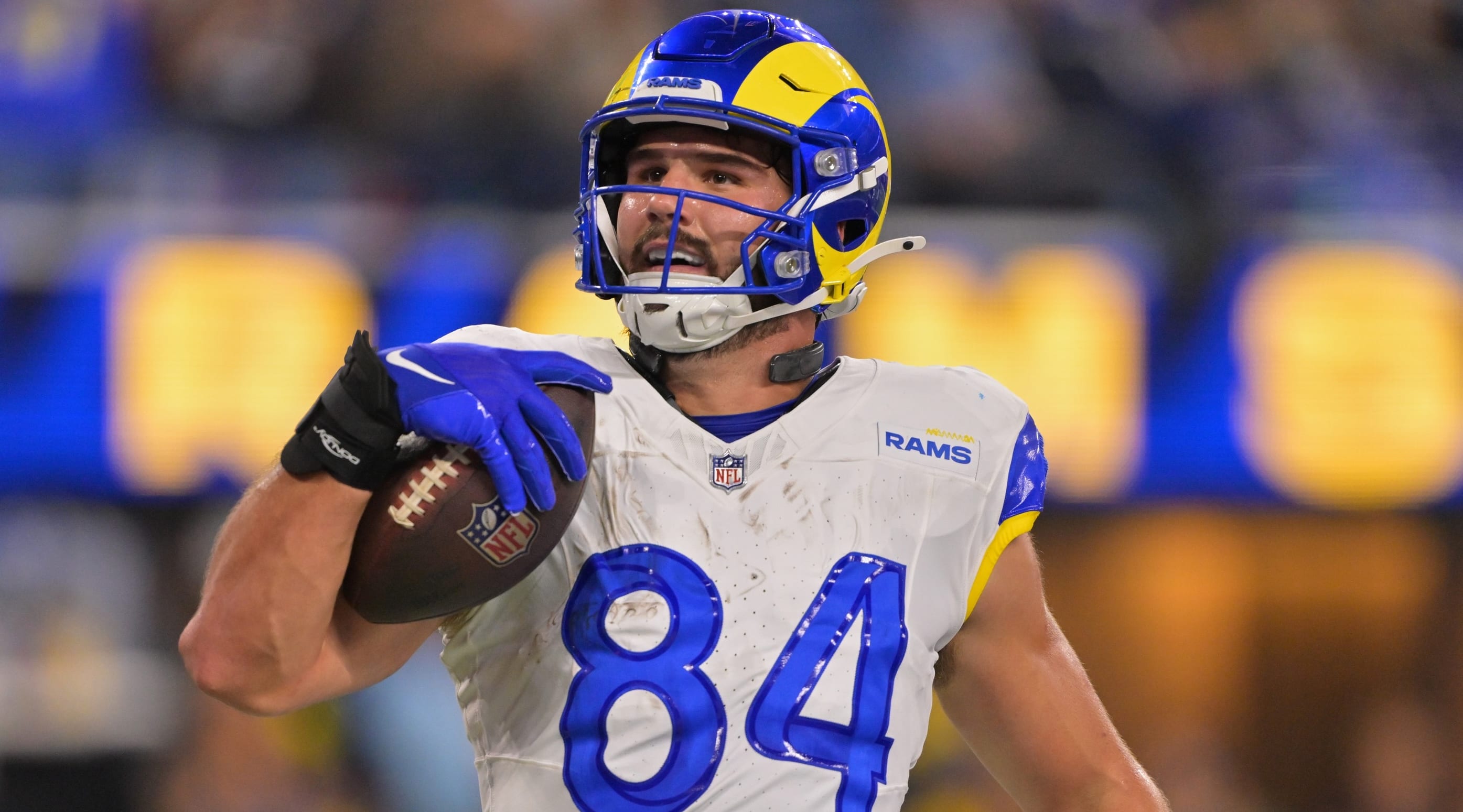Fantasy Football Rookie Rankings: Day 3 Reactions from the NFL Draft
This year's draft has been one of the more interesting in recent memory from a fantasy perspective, with QB and WR being two of the strongest position groups. The first round included six quarterbacks and seven wide receivers, with skill positions accounting for 10 of the first 13 picks and and each of the first 14 selections being used on an offensive player.
While the RB talent is less impressive this year, it's usually the position of most intrigue once we get to Day 3 of the draft. Last year, however, the late rounds brought more immediate fantasy value at wide receiver, led by Puka Nacua (Round 5), Dontayvion Wicks (5th), Demario Douglas (6th) and Trey Palmer (6th).
Below we'll take a look at each of the four main fantasy positions (QB/RB/WR/TE), sorting players by the order they were drafted. Individually, none of these guys is a strong bet to have fantasy utility for redraft leagues in 2024. However, some are better bets than others, and it's inevitable that at least a few of them end up making an impact. The goal below is to become familiar with all the Day 3 picks and figure out which guys are most likely to contribute (and what might need to happen for them to do so).
Quarterbacks
 Spencer Rattler - Round 5 (150th) / South Carolina
Spencer Rattler - Round 5 (150th) / South Carolina
Rattler had first-round buzz after throwing 28 passes at Oklahoma in 2020, but he lost his starting job to Caleb Williams the next season and then had mediocre numbers in his two years at South Carolina. He's only 6-foot, will turn 24 in September and isn't a prolific runner -- 410 career rushing yards, 16 TDs, 4.95 40 -- but Rattler did find a favorable landing spot. The Saints otherwise have Nathan Peterman, Kellen Mond and Jake Haener behind Derek Carr, who is scheduled for a guaranteed $10 million roster bonus and non-guaranteed $30 million base salary in 2025. In other words, the Saints will be looking for a new QB either next offseason or the year after.
 Jordan Travis - Round 5 (171st) / Florida State
Jordan Travis - Round 5 (171st) / Florida State
Travis started his college career at Louisville in 2018 before transferring to FSU and making his first starts in 2020. He had exactly seven rushing TDs and more than 400 rushing yards three straight years 2020-22, with his passing stats making a leap forward in 2022-23. Travis was even in the Heisman conversation last year until a fractured leg and dislocated ankle in mid-November ended his trophy bid and the Seminoles' title chances.
There are some similarities to Rattler, including suboptimal size (6-1, 200), ample college experience, advanced age (turns 24 this week) and the favorable landing spot with a team that has an old quarterback. Travis, however, will only be a third-stringer his rookie season, if he's available at all (the Jets are paying Tyrod Taylor good money to back-up Aaron Rodgers).
 Joe Milton - Round 6 (193rd) / Tennessee
Joe Milton - Round 6 (193rd) / Tennessee
Milton is yet another QB who will be 24 for his rookie season, albeit with much better physical tools and far less experience compared to Rattler/Travis. The 6-5, 235-pound QB made just five starts at Michigan and four at Tennessee before 2023, and even his final "breakout" year wasn't all that impressive statistically (2,769 passing yards, 20 TDs, 7.2 YPA, plus 292 rushing yards and six TDs).
Milton is famous for his arm strength, having been filmed throwing a football 85 yards and claiming he can go well beyond 90. It does kind of seem like he chose the wrong sport, and at this point it's probably too late to figure out the nuances of pitching. Then again, I thought Josh Allen would've made a better third baseman than quarterback, so what the heck do I know...
Anyway, Milton will start off as New England's No. 3 QB behind Drake Maye and Jacoby Brissett, with any potential advancement coming in 2025 or later and essentially depending on Maye being a bust.
Asked Joe Milton the question you all want to know:
He's been clocked at 98 mph on a baseball radar gun. 👀
— Nick Baumgardner (@nickbaumgardner) March 1, 2024
 Devin Leary - Round 6 (218th) / Kentucky
Devin Leary - Round 6 (218th) / Kentucky
This is kind of a strange choice for a team that built its offense around Lamar Jackson, considering Leary finished his college career with negative rushing yardage (remember that the numbers include lost sack yards) and only six rushing TDs in 39 starts. He started 27 games at NC State before transferring last year to Kentucky, where he completed 56.3 percent of his passes for 7.4 YPA, 25 TDs and 12 INTs. The Ravens must like his arm strength, because nothing stands out in terms of college production, mobility or size (6-1, 215)... and he'll turn 25 in September. Josh Johnson may not be a top backup QB, but he should be able to fend off a challenge from Leary.
 Michael Pratt - Round 7 (245th) / Tulane
Michael Pratt - Round 7 (245th) / Tulane
Pratt was a four-year starter at Tulane, where he threw 90 TDs against 26 interceptions, including 49:10 over his final two years while averaging 8.9 and 8.5 YPA. He also averaged 287 yards and seven TDs on the ground per year, and a lot of people seemed to view him as a middle-round pick. Pratt barely got drafted, but he at least landed with a team that has poor competition for backup jobs -- Sean Clifford and Alex McGough
Running Backs
Top Names for Fantasy: Jaylen Wright, Ray Davis, Kimani Vidal
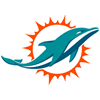 Jaylen Wright - Round 4 (120th) / Tennessee
Jaylen Wright - Round 4 (120th) / Tennessee
Wright was the first of 15 running backs taken Day 3, and he's seemingly the only one that was more commonly mocked as a Day 2 pick. He averaged 6.2 YPC on 368 carries in three seasons for the Vols, then ran a 4.38 40 at 5-11, 210. Wright is also one of the younger RBs in this draft, having just turned 21, but there are questions about his ability to work through traffic and handle large workloads. Of course, he might not need to do either of those things in Miami's offense... especially Year 1 when he'll mostly be stuck behind Raheem Mostert and De'Von Achane (for however long they manage to stay healthy). While probably most interesting for dynasty, Wright is also a reasonable bench stash for redraft leagues.
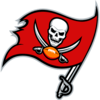 Bucky Irving - Round 4 (125th) / Oregon
Bucky Irving - Round 4 (125th) / Oregon
Irving was a great player at Oregon but hurt his draft stock with a 4.55 40, which was especially problematic given his size (5-9, 192). He now lands with a team that has a weak depth chart at his position, though it isn't necessarily the best outcome given that Tampa Bay's starter (Rachaad White) is so proficient on passing downs. Most people expected the Bucs to draft a thumper -- or at least someone bigger than Irving -- as a potential workload-lightener for White.
 Will Shipley - Round 4 (127th) / Clemson
Will Shipley - Round 4 (127th) / Clemson
Shipley ran for 2,748 yards and 31 TDs in three seasons at Clemson, adding 85 catches for 605 yards and another two scores. He didn't work out at the combine due to a minor knee injury but made up for it with a 4.45 40 and 38.5 inch vertical at Clemson's Pro Day (5-11, 206). He'll turn 22 in August and should challenge Kenneth Gainwell for the second spot on Philadelphia's depth chart behind workhorse Saquon Barkley.
 Ray Davis - Round 4 (128th) / Kentucky
Ray Davis - Round 4 (128th) / Kentucky
Davis had three seasons of at least 193 carries and 936 rushing yards, with the first coming in 2019 at Temple, the second in 2022 at Vanderbilt and the third in 2023 at Kentucky. The final year was his most impressive, featuring 5.7 YPC, 14 rushing TDs and seven receiving scores (on 33 catches). Davis had mediocre workout numbers at the 2024 Combine, including a 4.52 40, but that's less of a problem for someone with his stout build (5-8, 211). He also found a nice landing spot, as the Bills became more run-focused in the second half of last season but didn't bring in any other new RBs behind James Cook (who is only a month and a half older than Davis). It'll likely be Davis and Ty Johnson battling for the second spot on the depth chart this summer, and that's a role that should entail at least 6-8 touches per week.
 Isaac Guerendo - Round 4 (129th) / Louisville
Isaac Guerendo - Round 4 (129th) / Louisville
Guerendo was drafted a full two rounds earlier than the guy who worked ahead of him at Louisville last year, with most of the appeal based on a truly rare showing at the 2024 Combine (4.33 40, 41.5-inch vertical, 129-inch broad jump at 6-0, 221). We've occasionally seen NFL RBs whose prospect profiles were very light on production and heavy on workout numbers, but most of those guys weren't 24-year-old rookies that had never handled lead roles in college. Isiah Pacheco, for example, got plenty of playing time but just didn't put up good numbers because his Rutgers teams were so consistently overmatched. That said, I don't hate the idea of a guy with 4.33 speed going to Kyle Shanahan as a developmental prospect; just don't count on Guerendo unseating Elijah Mitchell for backup work anytime soon.
 Braelon Allen - Round 4 (134th) / Wisconsin
Braelon Allen - Round 4 (134th) / Wisconsin
Allen will be 20 years old for his entire rookie season, unless the Jets make a deep playoff run (don't laugh... it's actually possible this year). He ran for 1,268 yards and 12 TDs as a 17-year-old freshman at Wisconsin, then added 1,242 and 11 his sophomore year and 984 and 12 his junior season. Allen didn't run a 40-yard dash this spring and had subpar jumps, but that's less concerning given his age and size (6-1, 235). Any fantasy value will require a Breece Hall injury, of course, and even then it's no guarantee that Allen will be the one to benefit (the Jets also have 2023 fifth-round pick Israel Abanikanda and rookie fifth-rounder Isaiah Davis).
 Audric Estime - Round 5 (147th) / Notre Dame
Audric Estime - Round 5 (147th) / Notre Dame
Estime seems to have a lot of fans, though less so after running a 4.71 40 at the 2024 Combine. The good news is that he's only 20 years old (21 in September) and had a massive 2023 campaign for Notre Dame with 1,341 rushing yards and 18 touchdowns. Still, my money is on Jaleel McLaughlin getting most of the work behind Javonte Williams (or maybe even forcing a full-on timeshare). I'll take McLaughlin's speed and agility over Estime's size and power, all day every day.
 Rasheen Ali - Round 5 (165th) / Marshall
Rasheen Ali - Round 5 (165th) / Marshall
Ali had 1,735 total yards and 24 TDs in 2021, missed most of 2022 with an MCL injury, and then bounced back in 2023 for 1,348 total yards and 16 TDs. A biceps tear at the Senior Bowl prevented him from partaking in pre-draft testing, which some might say was a blessing in disguise given doubts about his athleticism. He looks fast enough on tape, in my opinion, though perhaps a bit thin by NFL standards (6-0, 209). Ali should be healthy for training camp, at which point he can compete with Justice Hill for backup work behind Derrick Henry (Keaton Mitchell seems unlikely to be ready for Week 1 after tearing multiple ligaments in December).
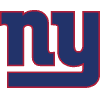 Tyrone Tracy - Round 5 (166th) / Purdue
Tyrone Tracy - Round 5 (166th) / Purdue
A converted wide receiver, Tracy had 589 receiving yards for Iowa back in 2019 and then didn't make much noise again until 2023 at Purdue. He took 113 carries for 716 yards and eight TDs last year, though with surprisingly little receiving production (19-132-0) for someone with his background. Tracy is about average for an NFL RB in terms of both size (5-11, 209) and speed (4.48 40), and he'll turn 25 midway through his rookie season. The reasons for optimism are a weak RB depth chart in New York and the possibility for continued development given his lack of experience at the position. Of course, the second argument would be more intriguing if he weren't so old for his draft class.
 Keilan Robinson - Round 5 (167th) / Texas
Keilan Robinson - Round 5 (167th) / Texas
This looks like a special teams pick, considering Robinson had 121 carries and 39 kick returns between two seasons at Alabama and three at Texas. He barely played offense last year even with Jonathon Brooks suffering a season-ending ACL tear.
 Isaiah Davis - Round 5 (173rd) / South Dakota State
Isaiah Davis - Round 5 (173rd) / South Dakota State
If we're talking about fistfights, Gang Green almost certainly has the best RB group in the league. Breece Hall is physically imposing in every sense, and the group behind him now includes Allen (6-1, 235), Davis (6-0, 218), 2023 fifth-round pick Israel Abanikanda (5-11, 215) and former XFL player Jacques Patrick (6-2, 228). The Jets certainly have a type, but it's hard to have confidence in Davis when Abanikanda is much faster and Allen much larger.
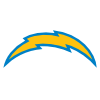 Kimani Vidal - Round 6 (181st) / Troy
Kimani Vidal - Round 6 (181st) / Troy
The Chargers were in no hurry to draft a running back despite having Gus Edwards and J.K. Dobbins (Achilles) atop their depth chart. It worked out swimmingly for Vidal, who now joins a team with a franchise QB, three recent first-round picks on the offensive line and weak competition for snaps in the backfield. The Chargers also have run-first offensive coordinator Greg Roman, who will be working with one of the least impressive groups of skill-position players in the league.
Vidal seems like a better prospect than the draft capital indicates, having run a 4.46 40 at 5-8, 213. He's quick, stout and was a four-year contributor at Troy, totaling 4,010 rushing yards and 700 receiving yards. Vidal will turn 23 in late August and could reasonably have climbed as high as second on the Chargers' depth chart by then.
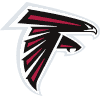 Jase McClellan - Round 6 (186th) / Alabama
Jase McClellan - Round 6 (186th) / Alabama
McClellan had only 39 fewer carries than Jahmyr Gibbs in 2022, but he then slumped to 4.9 YPC in a lead role in 2023 while dealing with a foot injury and ceding about half the carries to Roydell Williams, Jamarion Miller and Justin Haynes. The new Falcon checked in at 5-10, 221 at the 2024 Combine, but he didn't go through drills and also skipped them at Alabama's pro day. It's unclear if he skipped drills because of his foot or just because he probably would've been slow. Either way, I think he's a good pick here, considering he was discussed earlier in his career as potentially being a much earlier selection and he's considerably younger than a lot of the other Day 3 backs (22 in June).
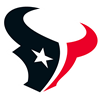 Jawhar Jordan - Round 6 (205th) / Louisville
Jawhar Jordan - Round 6 (205th) / Louisville
Jordan ran for 1,943 yards and 17 TDs over the past two seasons at Louisville, but I'm nonetheless surprised to see him drafted rather than falling into the UDFA pool. He caught only 39 passes in his college career, ran a 4.56 40 (at 193 pounds) during the 2024 Combine, and he'll turn 25 in August. The Texans probably drafted him to return kicks; he scored twice on 26 chances in college.
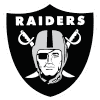 Dylan Laube - Round 6 (208th) / New Hampshire
Dylan Laube - Round 6 (208th) / New Hampshire
Laube is a small-school product with average size and workout numbers. He's mostly interesting because of the team he landed with; the Raiders didn't draft any RBs in the Top 200 even though Zamir White and Alexander Mattison are at the top of their depth chart. Laube caught 68 passes his senior season, making him a threat to displace Ameer Abdullah as the third-down back.
Wide Receiver
Top Names for Fantasy: Troy Franklin, Javon Baker, Devontez Walker, Jacob Cowing
 Troy Franklin - Round 4 (102nd) / Oregon
Troy Franklin - Round 4 (102nd) / Oregon
Franklin was a second-round pick in most mock drafts, though RotoWire's Mario Puig had him falling to the third. Franklin ended up dropping all the way to the fourth round, despite putting up an 81-1,383-14 receiving last year and then running a 4.41 40. NFL teams must be concerned about his lack of strength and extremely thin build (6-2, 176), but it wasn't all bad news for Franklin's fantasy value this weekend, as he ultimately landed with a team that just drafted his college quarterback (Bo Nix) and has a glaring need for wide receivers. Franklin, Josh Reynolds and Marvin Mims figure to compete for the No. 2 role behind Courtland Sutton, with Tim Patrick (ACL) and Brandon Johnson dark horses to earn roles.
Broncos trade up for Troy Franklin, Bo Nix's top weapon at Oregon.
It just makes too much sense. https://t.co/PUs49Urzq3
— Henry Chisholm (@HenryChisholm) April 27, 2024
 Javon Baker - Round 4 (110th) / UCF
Javon Baker - Round 4 (110th) / UCF
A four-star Alabama recruit who didn't play much before transferring to UCF, the 6-foot-1, 202-pound Baker finished his college career with a bang (52-1,139-7 in 2023) but then had middling workout numbers at the 2024 Combine (4.54 40, 37-inch vertical, 121-inch broad jump). His UCF highlight reel suggests he may have the play strength and hands to get away with subpar speed/acceleration, and his new home in New England offers the possibility of wide-open competition for WR roles. It's not hard to find prospect analysts who like Baker more than New England's second-round pick, WR Ja'Lynn Polk.
 Devontez Walker - Round 4 (135th) / UNC
Devontez Walker - Round 4 (135th) / UNC
Walker split his college career between Kent State and UNC, catching 99 passes for 1,620 yards and 18 TDs over the past two seasons after barely playing in 2021. He crushed the Combine -- 4.36 40, 40.5-inch vert, 134-inch broad jump -- but that's perhaps to be expected for an old-ish prospect (23 this summer) who weighed in at 6-2, 193. Walker figures to challenge Nelson Agholor for a spot alongside Zay Flowers and Rashod Bateman in three-wide sets, with potential to become Baltimore's No. 2 WR if Bateman doesn't rebound the way the Ravens seem to expect. Granted, that's probably not a high-volume role in an offense with Flowers, TE Mark Andrews and RB Derrick Henry, not to mention a frequent scrambler under center.
 Jacob Cowing - Round 4 (135th) / Arizona
Jacob Cowing - Round 4 (135th) / Arizona
The Tank Dell comparisons are unavoidable, as Cowing is a tiny wide receiver who put up some big-time numbers in college (albeit over five seasons and 58 games). The comparison probably won't translate to the pros, even after the 168-pound Cowing ran a 4.68 40-yard dash. His best season was a 1,354-yard effort at UTEP in 2021, while 2023 was heavy on volume and TDs but not yardage (90-848-13). I like him as a fourth-round pick, but he probably won't be anything close to Dell and might not see the field much as a rookie in San Francisco.
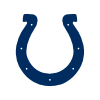 Anthony Gould - Round 5 (142nd) / Oregon State
Anthony Gould - Round 5 (142nd) / Oregon State
This looks like a special teams pick, as Gould didn't do much as a pass catcher until his fifth season at Oregon State, at which point he caught 44 passes for 718 yards and two TDs. He had two punt return TDs in 2022, and averaged 16.3 yards on 26 career returns for the Beavers.
 Ainias Smith - Round 5 (152nd) / Texas A&M
Ainias Smith - Round 5 (152nd) / Texas A&M
Smith was a five-year contributor, with his best season coming back in 2020 when he had a 43-564-6 receiving line plus 49-293-4 on the ground. The Aggies didn't use him much as a ballcarrier after that, however, and he never reached 800 receiving yards in a season. He checked in at 5-9, 190 at the 2024 NFL Combine, where the discovery of a stress fracture in his shin prevented him from partaking in predraft drills. Smith doesn't figure to play much as a rookie, and even if he eventually earns the No. 3 job it won't come with many targets.
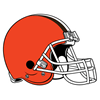 Jamari Thrash - Round 5 (156th) / Louisville
Jamari Thrash - Round 5 (156th) / Louisville
Thrash exploded for 61-1,222-7 in his fourth season at Georgia State and then put up 63-858-6 in 2023 after transferring to Louisville. He then ran a 4.46 40 at 6-0, 188, suggesting adequate but unspectacular athleticism. Thrash is unlikely to push Elijah Moore for Cleveland's WR3 role this season and looks like more of a fourth receiver long-term in any case.
 Bub Means - Round 5 (170th) / Pitt
Bub Means - Round 5 (170th) / Pitt
Means wasn't super productive in college, but he ran a 4.43 40 at the combine despite being heavy for his height (6-1, 212). The landing spot is pretty good, with New Orleans lacking a clear third WR behind Chris Olave and Rashid Shaheed. That said, A.T. Perry and Cedrick Wilson are more likely to land the role.
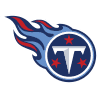 Jha'Quan Jackson - Round 6 (182nd) / Tulane
Jha'Quan Jackson - Round 6 (182nd) / Tulane Malik Washington- Round 6 (184th) / Virginia
Malik Washington- Round 6 (184th) / Virginia Johnny Wilson - Round 6 (185th) / FSU
Johnny Wilson - Round 6 (185th) / FSU Casey Washington - Round 6 (187th) / Illinois
Casey Washington - Round 6 (187th) / Illinois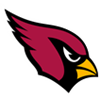 Arizona Cardinals Tejhaun Palmer - Round 6 (191st) / UAB
Arizona Cardinals Tejhaun Palmer - Round 6 (191st) / UAB Jordan Whittington - Round 6 (213th) / Texas
Jordan Whittington - Round 6 (213th) / Texas Ryan Flournoy - Round 6 (216th) / Southeast Missouri St.
Ryan Flournoy - Round 6 (216th) / Southeast Missouri St.
I hope at least one of these guys makes me look bad for not giving him an individual write-up. Unfortunately, there's only so much I can do with 15 RBs and 19 WRs being drafted Day 2. And in the case of the wide receivers, the guys drafted earliest are also the ones I was most interested in pre-draft.
Washington is a possible exception, given the extent of his senior-year production (110-1,426-9). But even he is somewhat of a longshot, considering the final season accounted for more than half of his career production and he's already 23 years old. He's neither big (5-9, 191), nor especially fast (4.47), but he did put up a 42.5-inch vertical and landed in a Miami offense that could have open competition for the No. 3 receiver job.
 Brenden Rice - Round 7 (225th) / USC
Brenden Rice - Round 7 (225th) / USC Devaughn Vele - Round 7 (235th) / Utah
Devaughn Vele - Round 7 (235th) / Utah Tahj Washington - Round 7 (241st) / USC
Tahj Washington - Round 7 (241st) / USC Cornelius Johnson - Round 7 (253rd) / Michigan
Cornelius Johnson - Round 7 (253rd) / Michigan
The Chargers double-dipped on WRs in the final round, taking Jerry Rice's son and one of Jim Harbaugh's former Michigan players. Both spent a lot of time in college without ever putting up huge numbers, though Rice did score on 12 of his 45 catches last year, and Johnson ran a 4.44 40 at 6-3, 208. Washington outproduced Rice in the other major statistical categories during their two seasons together at USC with Caleb Williams.
Tight End
Top Names for Fantasy: Ja'Tavion Sanders, Theo Johnson, Jaheim Bell
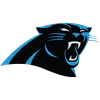 Ja'Tavion Sanders - Round 4 (101st) / Texas
Ja'Tavion Sanders - Round 4 (101st) / Texas
Sanders is coming off back-to-back 600-yard seasons in Texas offenses where each of the three WRs ended up being picked in this same 2024 Draft. While not a physical freak -- 6-4, 245 with a 4.69 speed -- his measurements are similar to a lot of the NFL's top tight ends. Sanders has the cleanest production profile among the Day 2 tight ends, by far, and he's the youngest of the bunch (also by far), having just turned 21 in March. On top of that, he landed with a team that has a hideous TE group. The problem, of course, is that the rest of the offense might be hideous as well... TBD.
 Theo Johnson - Round 4 (107th) / Penn St.
Theo Johnson - Round 4 (107th) / Penn St.
Johnson landed between 200 and 400 yards each of the past three years, never quite becoming a top receiving threat. However, he's both massive (6-6, 259) and fast (4.57) -- a combination that's worked out for other TEs without big-time college numbers. The 22-year-old Johnson has a nice opportunity for playing time in New York, where Darren Waller is said to be leaning toward retirement.
 Erick All - Round 4 (115th) / Iowa
Erick All - Round 4 (115th) / Iowa
Iowa's latest TE prospect, All had his best season back in 2021 at Michigan, where he caught 38 passes for 437 yards and two TDs. He missed most of 2022 to undergo spinal surgery, then suffered a torn ACL seven games into the 2023 season after transferring to Iowa. The fourth round seems kind of early for a TE who didn't put up big numbers in college, wasn't able to test before the draft and will turn 24 in September.
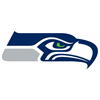 AJ Barner - Round 4 (121st) / Michigan
AJ Barner - Round 4 (121st) / Michigan
Barner never topped 249 yards or three TDs in a season between his time at Indiana and Michigan. He's apparently known for his blocking more so than his pass catching, even though he's 6-foot-6, 259 pounds. Barner and Pharaoh Brown figure to compete for blocking snaps behind Noah Fant in Seattle.
 Cade Stover - Round 4 (123rd) / Ohio St.
Cade Stover - Round 4 (123rd) / Ohio St.
Stover was more interesting before he got drafted by a team that just gave Dalton Schultz a three-year, $36 million contract. The LB-turned-TE caught 77 passes for 982 yards and 10 TDs the past two seasons while sharing OSU's offense with a bunch of future first-round NFL WRs, even slightly outproducing Emeka Egbuka last year (Egbuka's injuries were a big part of that, to be fair). A 4.65 40 at 6-4, 247 pounds puts Stover ahead of most tight ends for size-adjusted speed, though his other workout numbers were poor and he'll turn 24 before Week 1.
 Jared Wiley - Round 4 (131st) / TCU
Jared Wiley - Round 4 (131st) / TCU
Wiley was a fifth-year breakout after three seasons at Texas and two at TCU, putting up 47-520-8 his final season. He's a bit thin for a tight end (6-6, 249) but perhaps made up for it with a 4.61 40 at the combine. Wiley figures to be the third or fourth TE in Kansas City this year, behind Travis Kelce, Noah Gray, and possibly Irv Smith.
 Tanner McLachlan - Round 6 (194th) / Arizona
Tanner McLachlan - Round 6 (194th) / Arizona
The Bengals could be headed for wide-open competition at tight end with a handful of players involved, though McLachlan is perhaps least likely of the bunch to earn a significant role. That said, he's more intriguing than a typical sixth-round pick, having recorded 984 receiving yards in two seasons at Arizona before running a 4.61 40 at 6-5, 244. He'll likely need to put on some weight, and then prove it hasn't cost him too much speed/agility.
 Jaheim Bell - Round 7 (231st) / FSU
Jaheim Bell - Round 7 (231st) / FSU
Bell had a strange college career, with a 30-497-5 receiving line in 2021 at South Carolina and a 39-503-4 line in 2023 at FSU. In between, he managed just 25-231-2 for the Gamecocks in 2022, but added 73-261-3 on the ground. I'm not sure how relevant the rushing production is, given that FSU barely used him in that regard last season (four carries, one TD) and his 6-2, 241-pound frame suggests he's more likely to be an H-back than a Jaylen Samuels-type RB (return him?). Whatever the case, a 4.61 40 time at 241 pounds suggests Bell has some potential to be a useful pass catcher in the NFL. We just haven't seen many tight ends below 6-3 put up big fantasy numbers, and it doesn't help that he'll be 23 before Week 1.
 Devin Culp - Round 7 (246th) / Washington
Devin Culp - Round 7 (246th) / Washington
Culp's 4.47 40 time was the best in this draft class, with the massive caveat that he ran it at 6-3, 231. The other drawback is that he never reached 300 yards at Washington, even last season when the team played 15 games and Michael Penix threw 555 passes. The Bucs might have dreams of Culp replacing Cade Otton in obvious passing situations, or this might just be a special teams pick.


